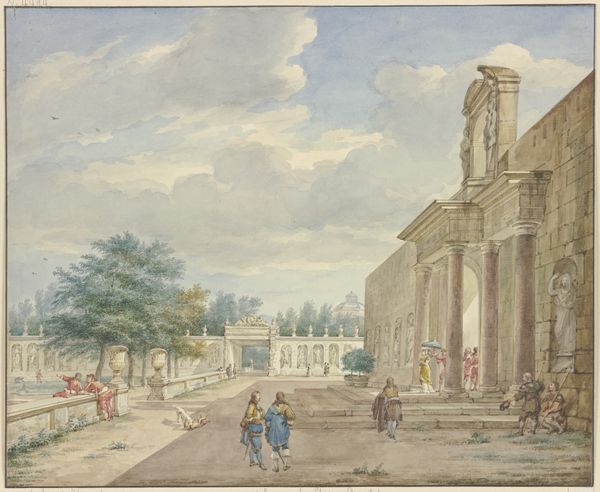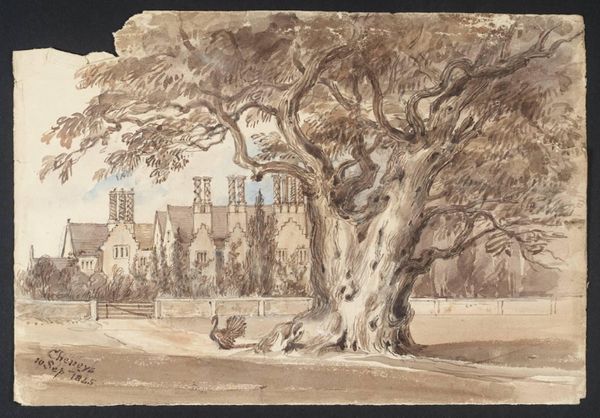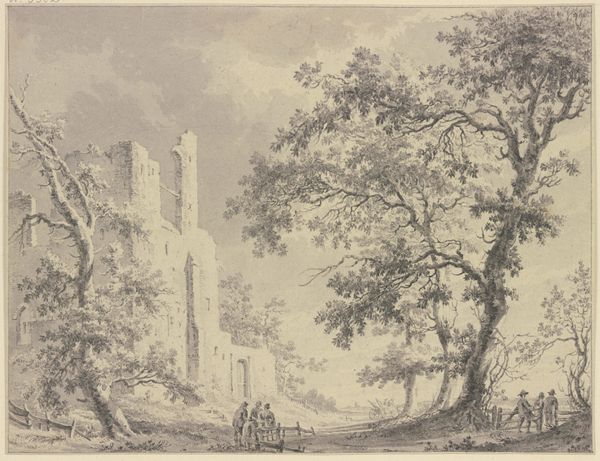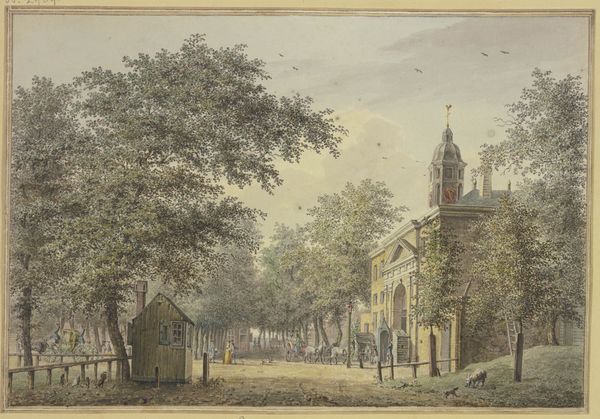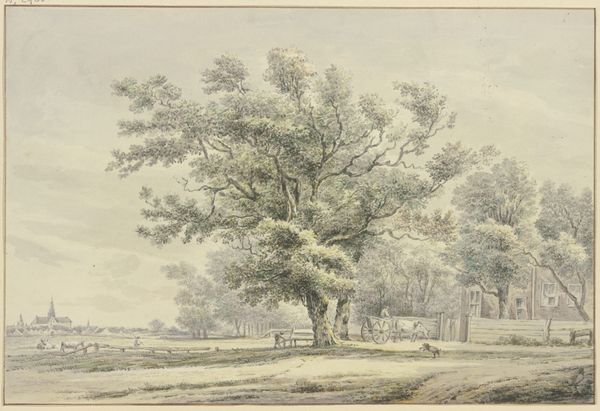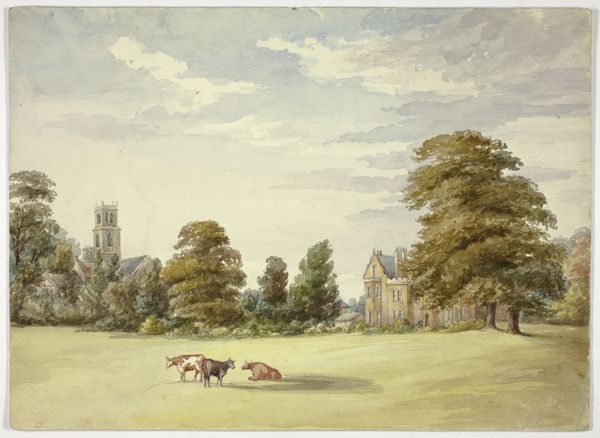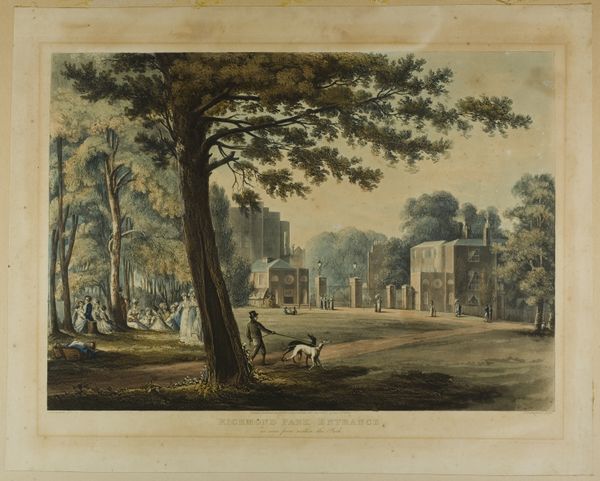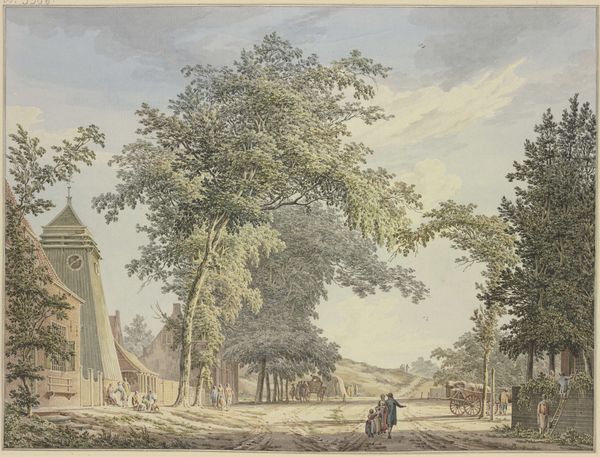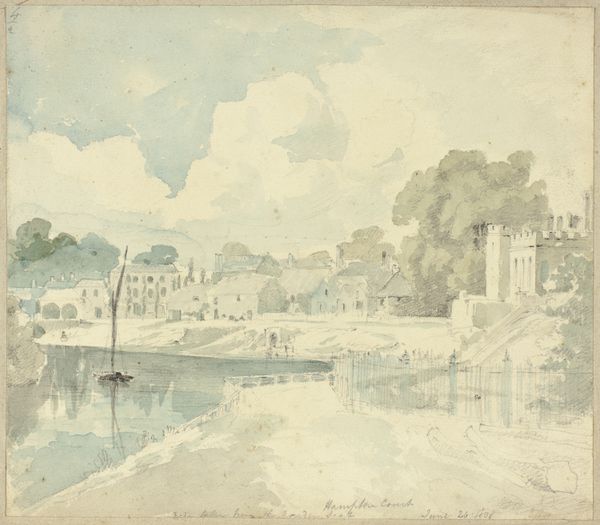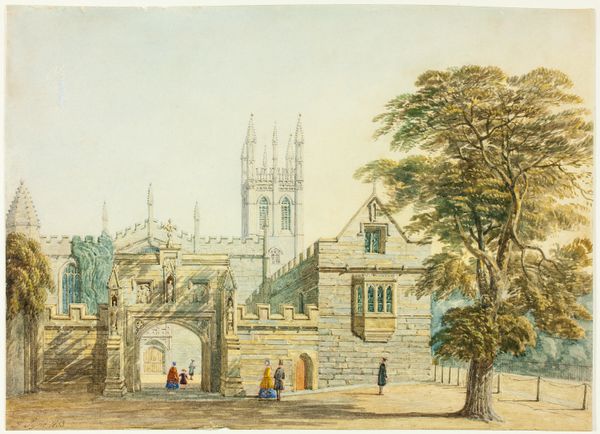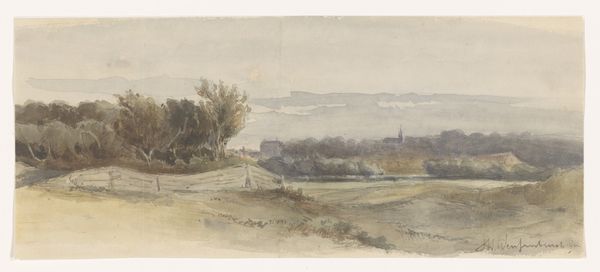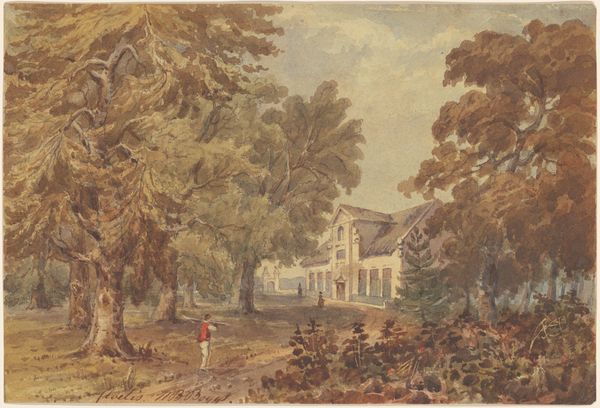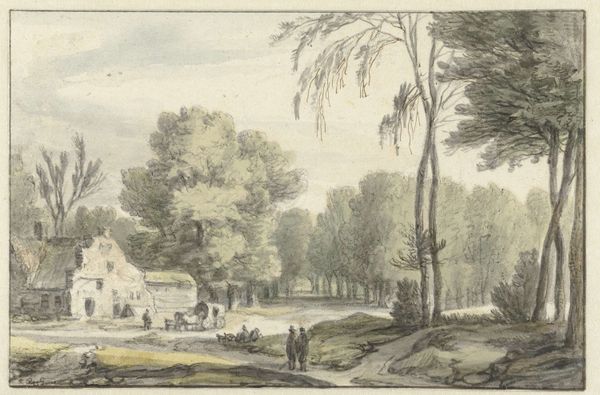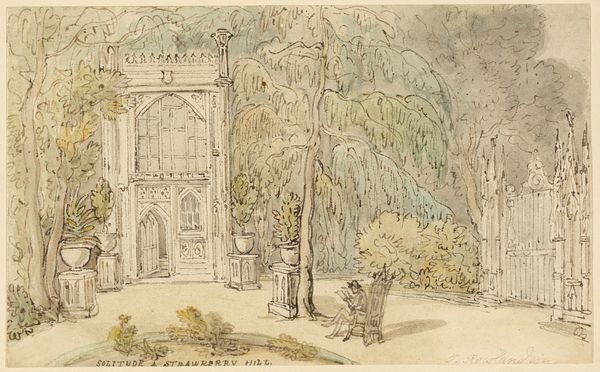
drawing, print, plein-air, watercolor
#
drawing
# print
#
plein-air
#
landscape
#
figuration
#
watercolor
#
coloured pencil
#
romanticism
#
genre-painting
#
watercolor
Dimensions: 10 x 14 in. (25.4 x 35.6 cm)
Copyright: Public Domain
Editor: Here we have an anonymous watercolor titled "View of a Churchyard, Southborough, Kent" from 1837. It's quite picturesque; there’s something about the light and shadow that feels very romantic, and yet almost…staged. What do you see in this piece? Curator: It's interesting you say staged. Think about how the Church of England was positioned during the 1830s – a time of social and political upheaval. The church was often viewed as a pillar of the establishment, deeply entwined with the landed gentry and the prevailing power structures. This seemingly benign scene masks those power dynamics. How does seeing this image change now, understanding its temporal context? Editor: That makes me consider the figures more carefully. They seem almost deliberately placed, as though to highlight the social hierarchy... Are those families wealthier than others? Is their placement near the church deliberate, to imply better people are nearer the church itself? Curator: Exactly! Landscape painting during this period wasn't just about pretty scenery. It was often used to reinforce particular social ideologies. The 'naturalness' of the landscape became a way to naturalize social inequalities, implying this is simply how things *should* be. Consider the implications of rendering such images for widespread viewing. Does this broaden public perspective? Or does it promote a conservative narrative? Editor: So, by portraying this seemingly idyllic scene, the artist might actually be subtly reinforcing those social inequalities. The very act of framing the church and the grounds could be a political statement, without outrightly promoting conflict. That's so subversive! Curator: It is indeed, especially if considered in contrast to how other painters in the era portrayed nature, such as in paintings that feature wild, untamed areas, in juxtaposition to what could also imply order and class. Thank you for teasing apart these threads. It encourages a deeper examination. Editor: I will now examine landscapes from different views! Thank you for sharing your perspective.
Comments
No comments
Be the first to comment and join the conversation on the ultimate creative platform.
